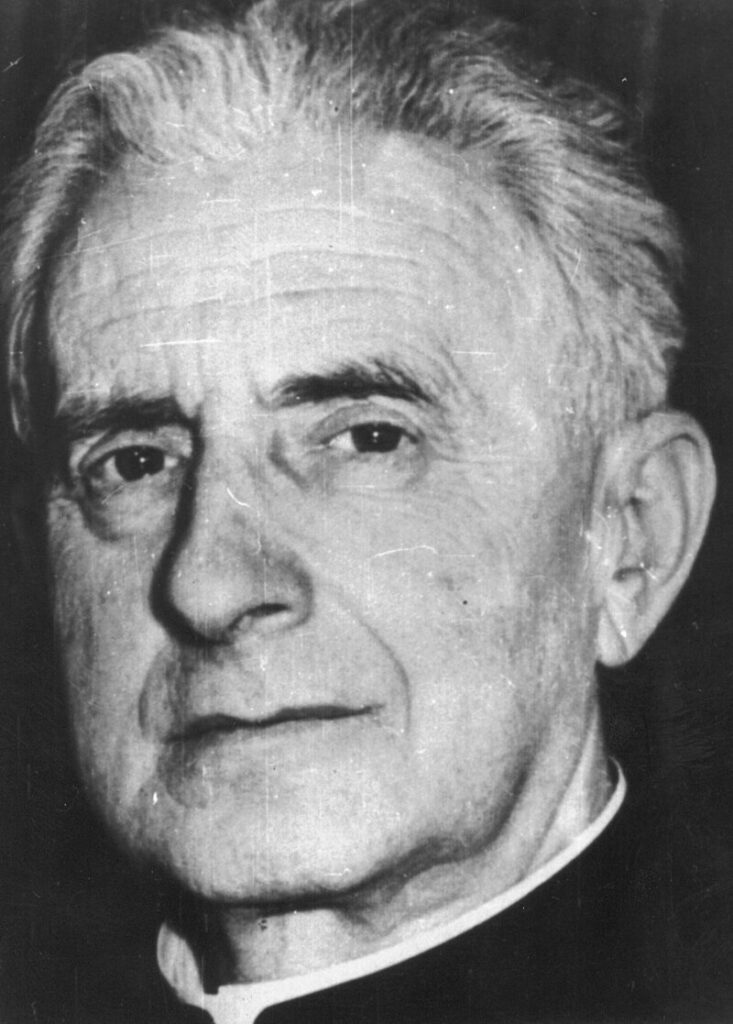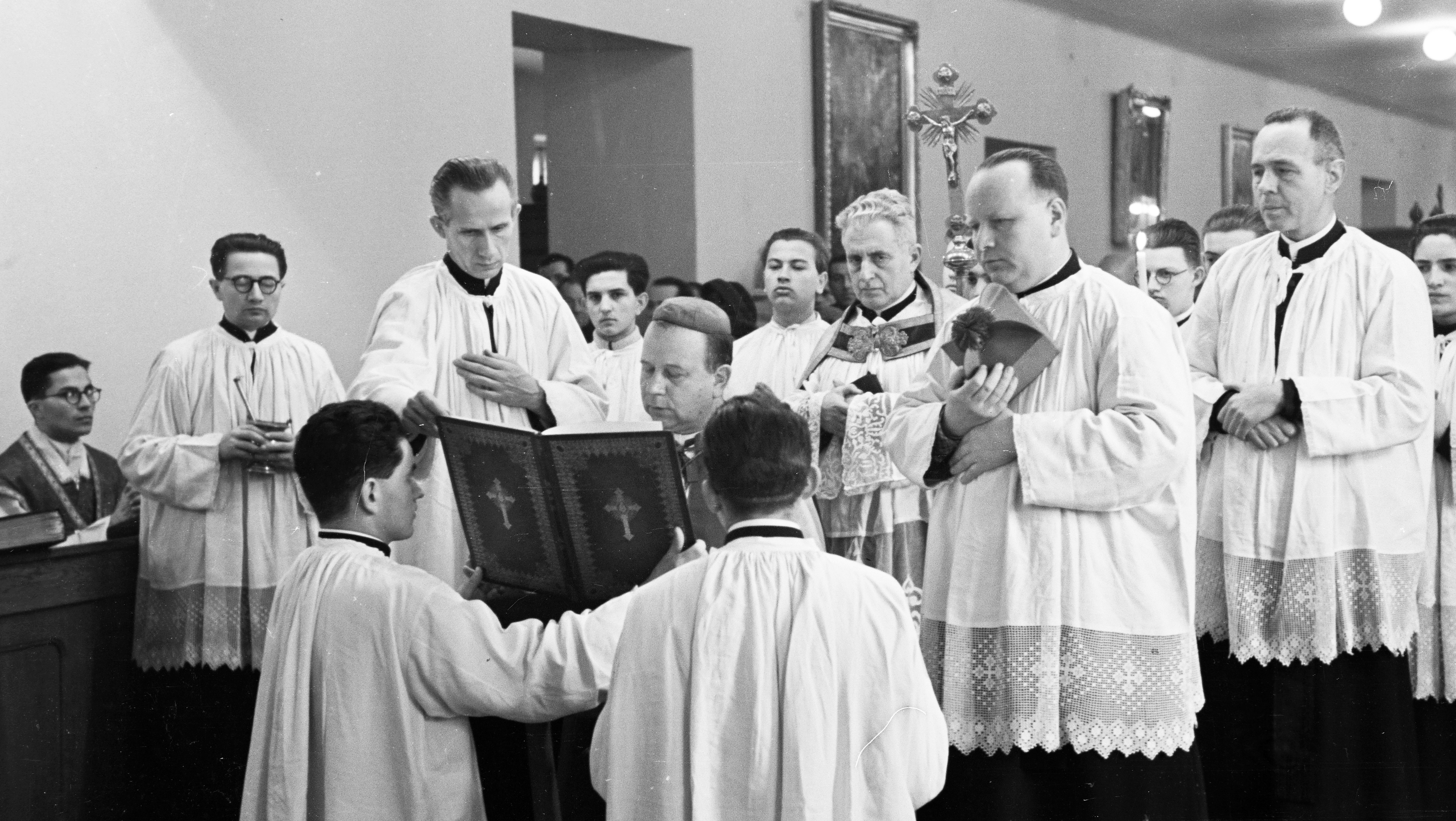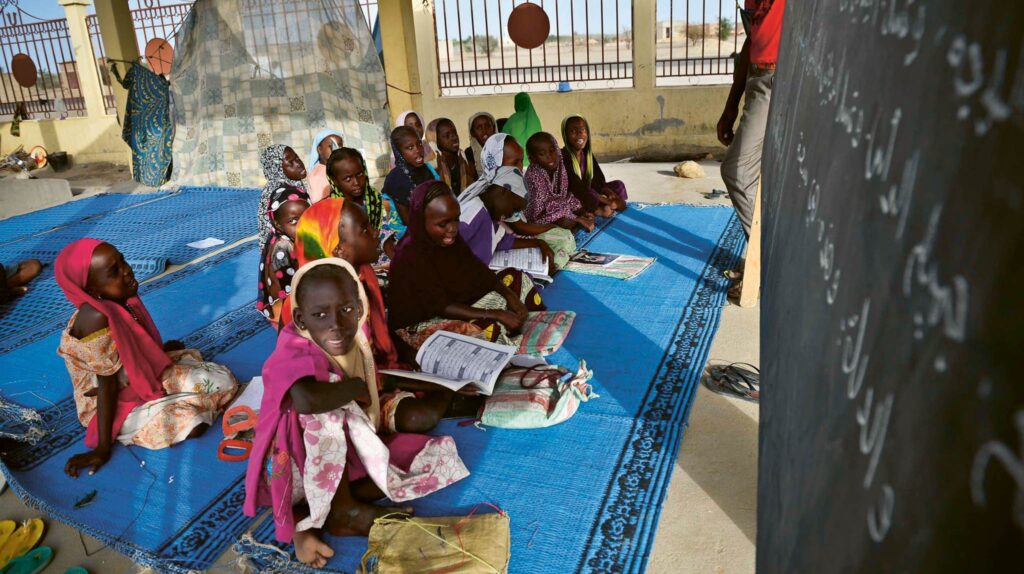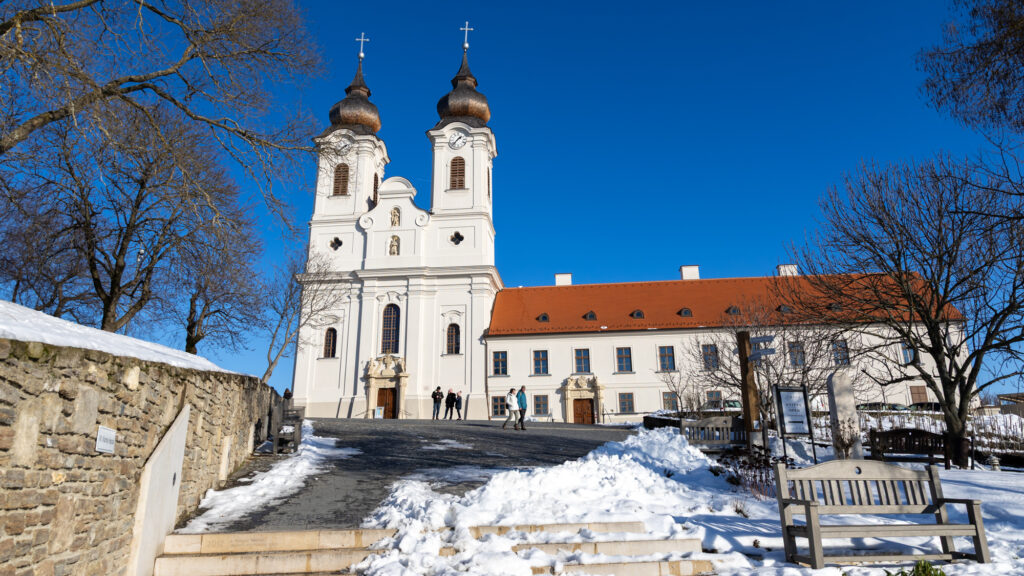The article is a product of the project titled Conservative Case in Education, supported by the Mathias Corvinus Collegium Learning Institute.
Sándor Sík was born in Budapest on 20 January 1889. He was a scout leader, a monk teacher, and a poet. His parents, lawyer Sándor Sík and Flóra Wintermitz, converted from Judaism to Catholicism before the birth of their children. Although born in Budapest, Sík spent his childhood in Gödöllő after the early loss of his father, and from there he attended the High School of the Piarist order in Budapest. During his years at the school, he became increasingly interested in the humanities, primarily literature and Latin, and the Catholic religion. In fifth grade, he decided to enter the Piarist Order. As a novitiate, he went to Vác and then to Kecskemét to attend schools run by the Piarists.
As an early manifestation of his interest in the humanities, he helped to edit the magazine Zászlónk, founded by the Regnum Marianum community, when he was still in high school. Although Sík did not become a member of the Regnum community, he maintained an active relationship with the editor of the magazine. His talent as a poet was already evident during his years in Kecskemét, and his writings won prizes in numerous competitions.
He studied Latin and Hungarian at the Royal Hungarian University in Budapest and earned his teaching degree in 1910. He began his teaching career at the Piarist High School in Vác, and was ordained a priest at the end of the 1910/11 school year. By then, he was already publishing regularly in Zászlónk and Élet, the latter of which he also edited.

Scouting
He became acquainted with scouting on a trip to Germany in the summer of 1911, from where he returned with the German version of Bi-Pi’s book. He contacted the representatives of the Christian Youth Association, which was working to establish scouting, and soon the Hungarian Scout Association was founded, with Sík as its first president.[1]
He founded his own team in the 1912/13 school year at the Piarist High School in Budapest. In the summer of 1913, he was one of the organizers of the famous ‘Rafting on the Vág’, which played a significant role in popularizing scouting. In 1922 he participated in the first international congress of scout leaders in Paris. In 1924 he participated as head of a delegation in the Danish jamboree.[2]
In 1926 he led the National Grand Camp as camp commander, overseeing eight thousand campers and hosting Bi-Pi’s deputy, Baron Lord Hampton. He later played a major role in organizing the 1933 Gödöllő jamboree.[3] From 1946, Sík served as honorary president of the reorganized Scout Association alongside Sándor Karácsony. However, he was unable to prevent the eventual suppression of scouting by the new communist regime.[4]
Pedagogical Ideas
The central element of Sándor Sík’s pedagogy is love and respect for human dignity. He believed that the basis of education is a loving and supportive atmosphere in which the student’s personality can develop. According to Sík, love is not just an emotion, but an active action that manifests itself in the relationship between teacher and student. It is the teacher’s task to create a safe and inspiring environment where students can engage with the world confidently and openly. Through this approach, learners will be enriched not only in knowledge but also in human values, and will be able to live a fulfilled life. Sík’s pedagogy is therefore based on the power of love, which is the foundation of all educational processes.[5]
‘The central element of Sándor Sík’s pedagogy is love and respect for human dignity’
As a catholic priest and later leader of the Piarist order, it is natural that Christian values such as humility, goodness and community spirit were given a prominent role in Sándor Sík’s pedagogical approach. He believed that these values should be present not only in theory but also in everyday practice. He encouraged his students to apply them in their daily lives, whether in school activities or community work. According to Sík, practising Christian values contributes to the development of pupils and strengthens their sense of community, and through them, students would mature into morally grounded and socially responsible adults.[6]
His pedagogy was practice-oriented, stressing that education must go beyond the school walls and be implemented in everyday life. He believed that learning should not be limited to theoretical knowledge, but should be completed through practical experience. He stressed the importance of self-education, in which pupils take responsibility for their own development and individual responsibility, which helps them to become aware and autonomous adults. For Sík, genuine education was lifelong and deeply personal.[7]
He was also influenced by contemporary educational movements, including pragmatist education and child studies. From John Dewey’s pragmatism, he emphasized hands-on experience and problem-solving. From thinkers like Édouard Claparède, he integrated insights into child development and psychology.[8]
Sándor Sík incorporated these principles into his own Christian pedagogical approach. He believed modern methods and Christian values—such as humility, kindness, and community spirit—were not in conflict but complementary. His practical approach to pragmatist education helped his students to apply what they had learned in their daily lives, while the results of his child studies helped him to better understand and support children’s individual development.[9] Thus, Sík’s pedagogy was both modern and traditional.[10]
Scientific Work and Role as a Piarist
In addition to his work as a scout leader, he continued teaching at the high school until 1929, then took a position at the literature department of the University of Szeged. His seminars were attended, for example, by the ethnographer and later minister Gyula Ortutay and poet Miklós Radnóti. He spent the last days of the Second World War in the monastery in Budapest, and returned to Szeged only briefly after the war. The Second Jewish Law would have applied to him, but he was exempted. He was hopeful about the post-war democratic experiment. He became the executive vice-president of the National Council for Public Education, and later rose to leadership positions within the Piarist Order. In 1946, he became senior assistant to the head of the Order in Hungary, Vince Tomek, and succeeded him as leader in 1947.[11]
His main task as head of the Order was to ensure its continuity. Although the 1950 law on the nationalization of church schools still allowed educational activities in Budapest, in 1953, after two and a half centuries, the Piarists had to leave their building near Elisabeth Bridge to allow the University of Budapest to operate there. The new location for the high school and the convent was the Sophianum building on Mikszáth Kálmán Square. He spent his last years in the Budapest monastery, doing his best to keep active despite his worsening illness. He gave his Golden Sermon in 1961, and two years later, he passed away in Budapest on 23 September 1963.[12]
Sándor Sík’s life and work exemplify the integration of Christian values with modern educational principles. As a Piarist, poet, and scout leader, he emphasized love, respect, and community in his pedagogy. His contributions to scouting and education fostered moral and community-oriented development in students, leaving a lasting legacy that continues to inspire educators and scouts. Sík’s dedication to both his faith and innovative teaching methods made him a pivotal figure in Hungarian education and beyond.
The article is a product of the project titled Conservative Case in Education, supported by the Mathias Corvinus Collegium Learning Institute.
[1] Ferenc Gergely, A magyar cserkészet története 1910–1948, Budapest, Göncöl Kiadó, 1989, 23.
[2] Gergely, A magyar cserkészet története 1910–1948, 29.
[3] Gergely, A magyar cserkészet története 1910–1948, pp. 156–158.
[4] Gergely, A magyar cserkészet története 1910–1948, pp. 348–349.
[5] Ferenc Bíró, ‘Sík Sándor tanári arca’, Új ember 45/4, 1989, 3.
[6] Bíró, ‘Sík Sándor tanári arca’, 3.
[7] István Páva, ‘Magyarabb magyar’ in Elemér Várnagy ed Sík Sándor pedagógiája a ‘Fiatal Magyarság’-ban, Pécs, JPTE BTK, 1994, https://mek.oszk.hu/01800/01821/01821.htm#1 accessed 12 Dec 2024.
[8] István Mészáros, Sík Sándor, a pedagógus, Budapest, 1992, 13–19.
[9] Elemér Várnagy, ‘Emberebb ember’ in Elemér Várnagy ed Sík Sándor pedagógiája a ‘Fiatal Magyarság’-ban, Pécs, JPTE BTK, 1994, https://mek.oszk.hu/01800/01821/01821.htm#1 accessed 12 Dec 2024.
[10] Várnagy, ‘Emberebb ember’
[11] István Diós, ‘Sík Sándor’
[12] István Diós, ‘Sík Sándor’
Related articles:







